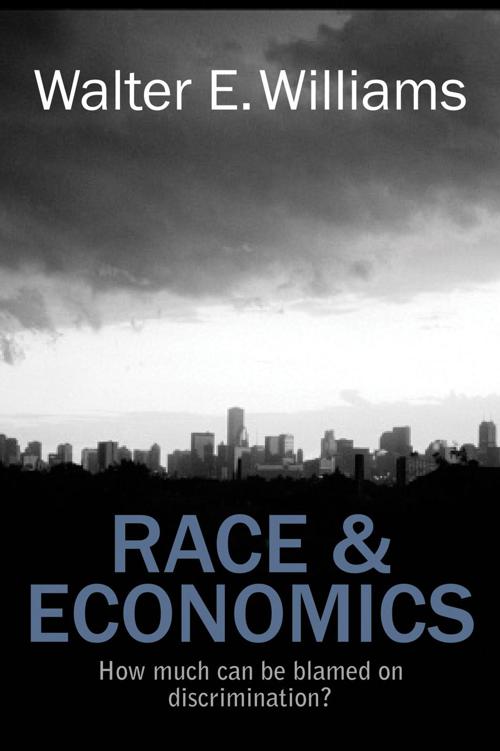

Most ebook files are in PDF format, so you can easily read them using various software such as Foxit Reader or directly on the Google Chrome browser.
Some ebook files are released by publishers in other formats such as .awz, .mobi, .epub, .fb2, etc. You may need to install specific software to read these formats on mobile/PC, such as Calibre.
Please read the tutorial at this link: https://ebookbell.com/faq
We offer FREE conversion to the popular formats you request; however, this may take some time. Therefore, right after payment, please email us, and we will try to provide the service as quickly as possible.
For some exceptional file formats or broken links (if any), please refrain from opening any disputes. Instead, email us first, and we will try to assist within a maximum of 6 hours.
EbookBell Team

5.0
68 reviewsWalter E. Williams applies an economic analysis to the problems black Americans have faced in the past and still face in the present to show that that free-market resource allocation, as opposed to political allocation, is in the best interests of minorities. Contrasting the features of market resource allocation with those of the political arena, he explains how, in the political arena, minorities cannot realize a particular preference unless they win the will of the majority. In the market, he shows, there is a sort of parity (nonexistent in the political arena) in which one person’s dollar has the same power as the next person’s.
Williams debunks many common labor market myths and reveals how the minimum wage law has imposed incalculable harm on the most disadvantaged members of our society. He explains that the real problem is that people are not so much underpaid as underskilled and that the real task is to help unskilled people become skilled. The author also reveals how licensing and regulation reduce economic opportunities for people, especially those who might be described as discriminated against and having little political clout. Using the examples of the taxi cab and trucking industries before and after deregulation, he illustrates how government regulation closes entry and reinforces economic handicaps, whereas deregulation not only has helped minorities enter industries in greater numbers but also has benefited consumers.
From the Inside FlapThe black experience in America naturally gives rise to thinking of today’s black experience in terms of racism and oppression. But the most difficult problems black Americans face, particularly those who are poor, cannot adequately be explained bycurrent racial discrimination.In Race and Economics, Walter Williams argues that many problems are a result of policies, regulations, and restrictions emanating from federal, state, and local governments. It is not free markets and the profit motive that have reduced opportunities, the author asserts; instead, it is the power of vested interest groups, as a means to greater wealth, to use the coercive powers of government to stifle market competition.
Williams debunks many common labor market myths and reveals how the minimum- wage law has imposed incalculable harm on the most disadvantaged members of our society. He explains that the real problem is people are not so much underpaid as underskilled and that the real task is to help unskilled people become skilled. The author also reveals how licensing and regulation reduce economic opportunities for people, especially those who might be described as discriminated against and having little political clout. Using the example of the trucking industry before and after deregulation, he illustrates how government regulation closes entry and reinforces economic handicaps, whereas deregulation not only has helped minorities enter an industry in greater numbers, but also has benefited consumers.
People will not engage in activities, including racial discrimination, says Williams, if the cost is too high. In markets, because transactions are mostly an individual affair, it is unnecessary to win the approval or permission of others; the costs and benefits are a private matter. But in the political arena, each citizen has only one vote, meaning that, unlike the free market, a minority cannot register the intensity of his preference. Further, increased concentration of political power at the national level handicaps minorities in the sense that their votes become diluted. The author ultimately shows that free-market allocation, not political allocation, is what is truly in the best interests of minorities in America.
From the Back CoverThere is no question that black Americans have suffered gross violations of basic human rights in the forms of slavery, discrimination, and personal violence. But, says Walter Williams, an acknowledgment of these injustices, and of current residual discrimination, does not help to evaluate what is, or is not in the best interest of blacks today. In Race and Economics, Williams applies an economic analysis to the problems black Americans have faced in the past and present to show that that free-market resource allocation, as opposed to political allocation, is in the best interests of minorities.
Contrasting the features of market resource allocation with those of the political arena, he explains how, in the political arena, minorities cannot realize a particular preference unless they win the will of the majority. In the market, he shows, there is a sort of parity (nonexistent in the political arena) in which one person’s dollar has the same power as the next person’s. Looking at the effects of political decision making in areas such as minimum-wage laws, occupational and business licensure, and industry regulation versus deregulation, Williams offers evidence that government attempts to help minorities actually reduce economic opportunities for people, especially those who might be described as discriminated against and having little political clout. Ultimately, he says, people can offset some of their handicaps by offering a higher price for what they buy or a lower price for what they sell—what economists call compensating differences.